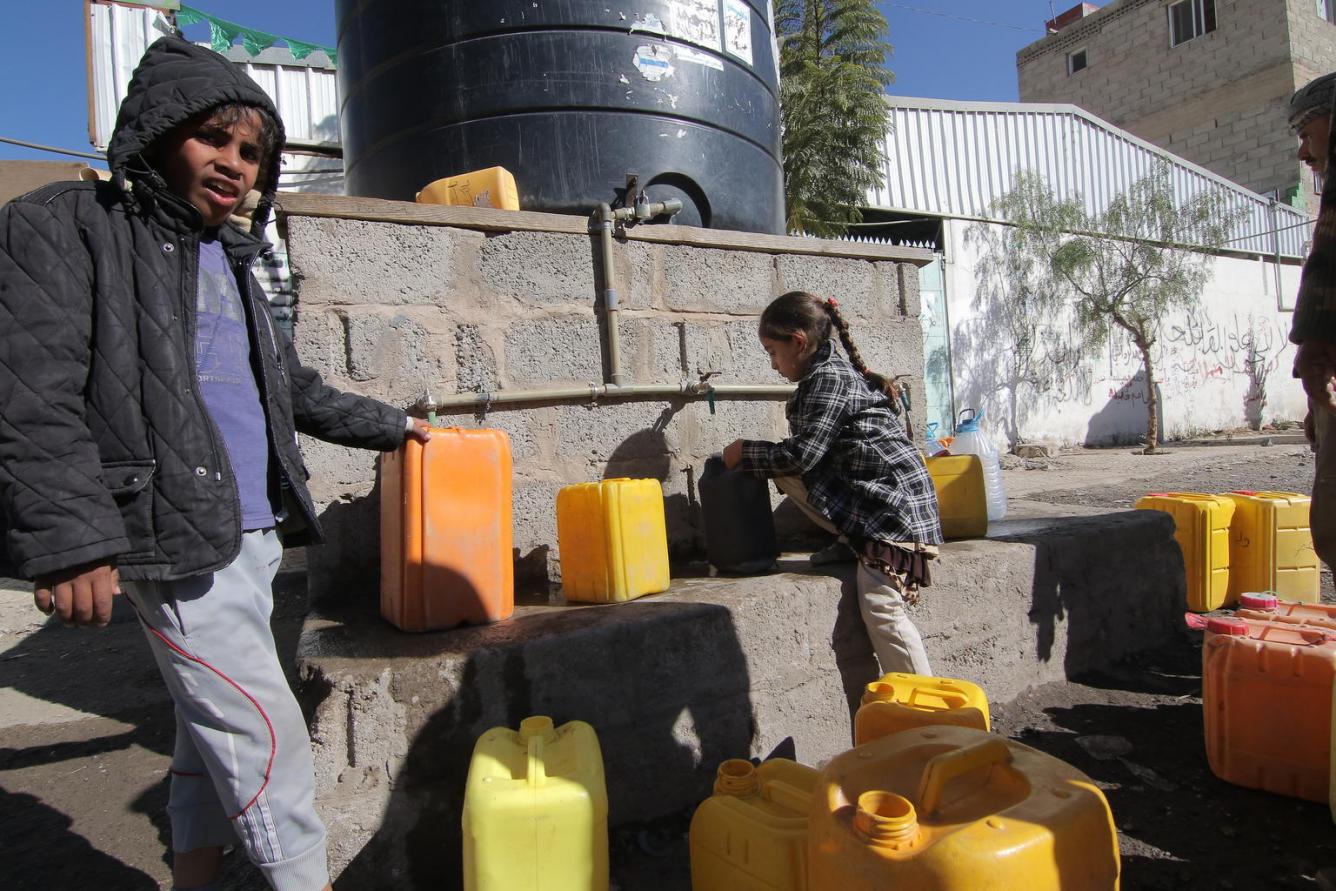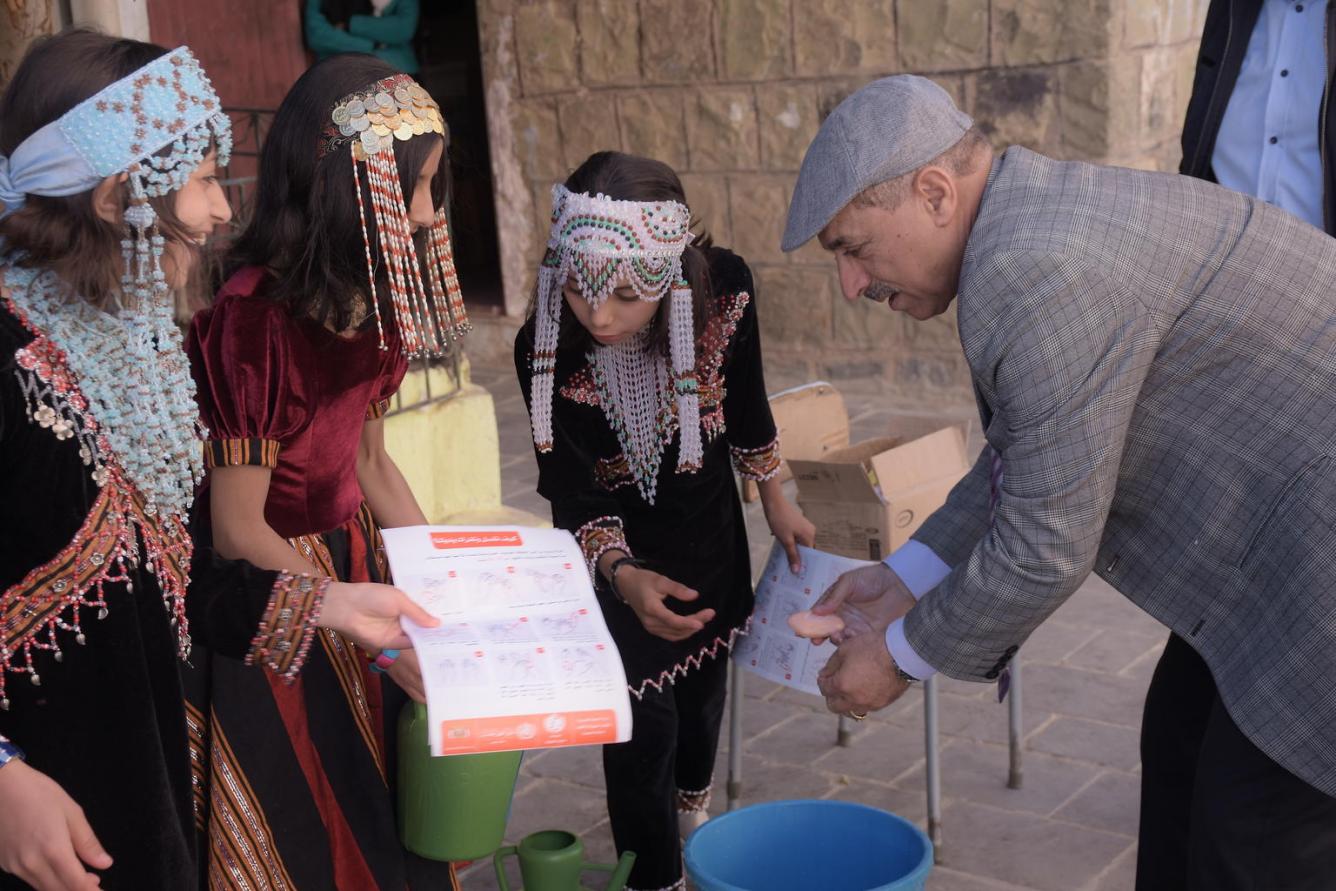Helping children survive in Yemen
When you think of the ways in which wars and conflicts are fought, water wouldn’t immediately come to mind, but in many conflicts, restricting or controlling the access to water can be used as a weapon. It has happened throughout history, across the globe.
When a community’s water supply is cut off, children and families are forced to rely on unsafe water, or leave their homes in search of a new source. At times this may mean families have to reduce or ration their water supplies, other times it means drinking water that is clearly contaminated and dangerous.
For children, the consequences can be deadly, as water and sanitation related diseases remain among the leading causes of death in children under five.

In one of the worlds already most water-scarce countries, the conflict in Yemen has made matters worse, particularly for children who depend on clean drinking water and adequate sanitation for good health and survival.
Help children in Yemen.
After four years of bombing and ground fighting, as well as fuel shortages experienced by local water corporations and soaring costs of commercial water trucking— the main source of water for many —millions of Yemenis do not have access to clean water and sanitation. Of these, 50 per cent have been directly cut off from these basics of life by the conflict.
A rippling effect of the dire WASH situation has been the outbreak of cholera and Acute Watery Diarhoea in the capital, Sana’a and other areas in the country.
Together with partners, UNICEF has been scaling up its response in Water, Sanitation and Hygiene (WASH) to prevent and control diseases. Since the beginning of 2018, nearly 5 million people received access to safe drinking water. Additionally, over 5.5 million people living in high risk cholera areas had access to household level water treatment and disinfection. Clean water supplies are being established through the provision of electricity in communities.

UNICEF has been making a concerted effort to support children in Yemen, but the ongoing conflict has resulted in “almost every single child in Yemen depend[ing] on humanitarian assistance to survive” according to Geert Cappelaere, UNICEF Regional Director for the Middle East and North Africa.
Basic services like water, healthcare and sanitation have all but collapsed, and with the economy in freefall, families cannot afford to feed their children or bring them to health facilities. In Yemen, one child dies every 10 minutes from preventable causes, including malnutrition and vaccine-preventable diseases.
